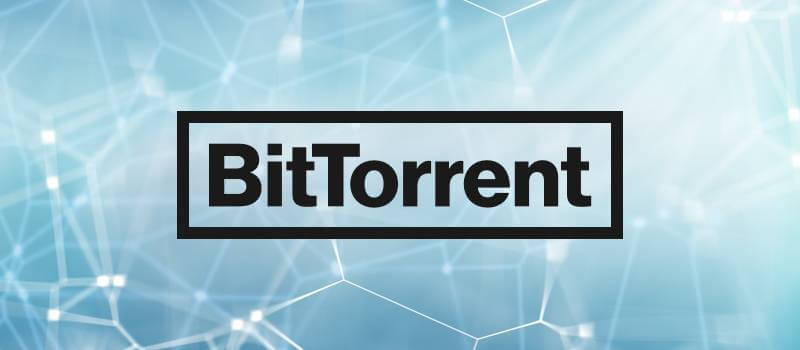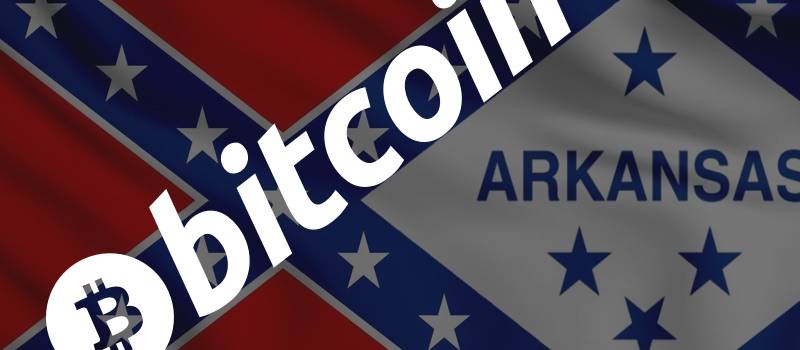The Hong Kong Monetary Authority, which is the central banking institution of the city-state, intends to establish a new regulatory regime for digital assets by this coming July. The special administrative region of China will be following Singapore’s path to become a cryptocurrency hub for that part of the world. According to a recent report by Bloomberg, Hong Kong’s central bank will approach the cryptocurrency industry in three manners: protect local investors, develop comprehensive rules for authorized institutions regarding how to deal with digital assets, and finally, pay special attention to Stablecoins. The Hong Kong Monetary Authority (HKMA) will be putting Stablecoins under enhanced scrutiny. In a recent press release, the institution said such assets present “possible risks regarding monetary and financial stability.” The central bank noted it had been closely monitoring the development of these assets and “would like to proactively share” its views with the broader society. The Chief Executive of the HKMA, Mr. Eddie Yue, revealed the bank is waiting for feedback from stakeholders about their recent proposals.
He added that the HKMA will draw up a “risk-based, pragmatic, and agile regulatory regime” for the cryptocurrency industry. Currently, the special administrative region of China employs a so-called “opt-in” rule for local digital asset exchanges, which means they can apply to get supervised. Not long ago, Joshua Chu – a consultant at ONC Lawyers – described this model as ineffective, and the government should consider changing its policy. In May 2021, the local authorities intended to apply a rule that would only allow millionaires to trade with cryptocurrencies. This amounted to about seven percent of the total population of Hong Kong. Back then, Christopher Hui – Hong Kong’s Treasury Secretary – called this initiative a well-thought decision. The week before last, the cryptocurrency exchange Coinsuper became one of the hottest topics in the city-state when dozens of its clients complained that they could not withdraw funds. Some affected users had even contacted the police to seek a solution. Executives of Coinsuper could not be located to give more details on the matter. What made matters worse, was that the administrator of the company’s telegram chat stopped responding to queries about failed transactions over a month ago. Despite all these issues, the trading application, and the website of Coinsuper, remained functional.

BitTorrent Token Dominates the Weekly Crypto Charts on Crypto Bubbles
Rather unexpectedly, BitTorrent token (BTT) dominated the crypto weekly charts early last week. Its history: BitTorrent had a decent run until April 2021, when it plummeted after the Bitcoin crash in May 2021. At that time, it dipped drastically and remained beaten down during the entire second half of 2021. Its price seemed like it was on the path to dwindle down to nothing. However, BTT is now scratching and clawing its way back to former glory, thus, so far changing its fortunes in 2022. The sudden spike came after BitTorrent announced it had consolidated its tokens to a 1:1000 migration ratio. The consolidation process began on January 10, 2022 and is currently ongoing. When the consolidation period is complete, BTT is going to be renamed BTTC. The token was in its prime before May 2021. It had touched an all-time high of $0.01356626 on April 05, 2021. However, the market conditions weren’t kind to BTT after the BTC crash, and it is still down -81.1% from its ATH. The token had disappeared from all charts after May, and it only came back to life in December 2021, after rising 52% in a single day on December 7th.
BitTorrent is now seeing a surge in buyers, and the consolidation process has brought the token back to life. The Crypto Bubbles website shows the BitTorrent token making an entry and dominating other tokens in terms of price rise. Investors believe that its price may have bottomed out and this new upward spiral is just in its beginning stages. If BTT continues its upward trend for a few more weeks, it could deliver decent returns to investors who have taken entry positions recently. However, it is important to note that other investors believe that this recent spike in price could be a one-off and so it is advisable to remain cautious. Just what is BitTorrent Token (BTT)? BitTorrent is a popular software that has been around for close to three decades. The software is used to download movies, songs, and other items which link to pirate websites. However, when pirate websites faced a crackdown, this resulted in BTT’s declining popularity. Its saving grace came in 2018 when Justin Sun, the founder of Tron, acquired the company for $180 million. Since then, BTT entered the blockchain industry and currently has around 200 million active wallets.
Even since December 2021, the token is down yet again – about twenty-four percent in the last 30-trading days. However, its market cap has reached $2.3 billion with a trading volume of $309 million. At the time this article was written, BitTorrent was trading at $0.00255770 and was up +4.5% in the prior twenty-four-hour trading period.

Jack Dorsey to Launch “Bitcoin Legal Defense Fund”
Open-source Bitcoin developers are often subject to “litigation” and “threats,” and Jack Dorsey, the CEO of Block and ex-CEO of Twitter, has proposed creating a nonprofit organization to protect their rights and interests. Dorsey explained via email to the Bitcoin-dev mailing list on January 12 that the nonprofit’s intention would be to defend Bitcoin developers from these threats. He hopes to help give support to these contributors and maintainers, so they don’t capitulate. This is something they often do now since many lack legal support. “The Bitcoin Legal Defense Fund is a nonprofit entity that aims to minimize legal headaches that discourage software developers from actively developing Bitcoin and related projects such as the Lightning Network, Bitcoin privacy protocols, and the like,” Dorsey’s email read. In October 2021, Bitcoin Core maintainer Jonas Schnelli stepped down from the project, citing increased “legal risks for Bitcoin developers.” He suggested at the time that new contributors “join anonymously.” In December, two other developers also left the project. Samuel Dobson said earlier in the month that he would no longer maintain Bitcoin Core, after three years of dedication, so that he could focus on his Ph.D. This was followed a few days later by John Newbery, who stepped away from working on Bitcoin development, saying that he was “moving on to other things.”
Dorsey’s initiative has plans to prevent such losses by “finding and retaining defense counsel, developing litigation strategy, and paying legal bills,” per the email, which was co-signed by the Fund’s board, Chaincode Labs co-founder Alex Morcos, and academic Martin White. “This is a free and voluntary option for developers to take advantage of if they so wish,” the email continued. It went on to say, “The Fund will start with a corps of volunteer and part-time lawyers. The board of the Fund will be responsible for determining which lawsuits and defendants it will help defend.” According to the email, the Fund’s first activity will be to take over and coordinate the defense of the Tulip Trading lawsuit, in which Craig Wright claims he is a victim of theft of the private keys connected to billions of dollars’ worth of Bitcoin that were drained in the Mt. Gox hack. Many defendants are prolific Bitcoin developers and Bitcoin Core maintainers, including Schnelli, Wladimir Van Der Laan, Marco Falke, Pieter Wuille, Peter Todd, and Matthew Corallo, among others. The email also said that the initiative isn’t seeking additional funding at the moment, but that it may do so if needed in the future at the board’s discretion.

Northwest Arkansas Offers $10,000 in Bitcoin to People Who Settle in The Region
Northwest Arkansas is widely regarded as one of the top places to live in the United States due to its job opportunities and low cost of living. Despite its advantages, the region consists of a mere 540,000 inhabitants. In hopes of attracting more individuals who will settle in the area, local authorities have launched a cryptocurrency program. The Northwest Arkansas Council has stepped into the world of crypto by giving away $10K worth of Bitcoin to professional workers. The only condition: they have to settle in the region. But still: move-in and Get Bitcoin! According to the council, tech professionals and entrepreneurs can apply for $10,000 in Bitcoin if they move to live there. Nelson Peacock, the President and CEO of the Northwest Arkansas Council, presented more details on the offer: “We’re offering remote tech professionals and entrepreneurs $10,000 in Bitcoin to bring your talents to the region. Why Bitcoin? Northwest Arkansas is experiencing explosive growth in the tech sector, specifically within blockchain-enabled technologies, and this incentive embraces the growing trend of cryptocurrency as a payment option by employers.”
It is worth noting that people could still choose to receive the $10,000 in cash instead of in the form of Bitcoin. Additionally, the authorities are also giving away a mountain bicycle to those willing to call Northwest Arkansas their new home. The bike is meant to help the newcomers, since the area consists of hundreds of miles of biking trails that have made outdoor enthusiasts flock to this part of America. This announcement follows last summers by the Mayor of Cool Valley, Missouri – Jayson Stewart – who revealed his intentions to give $1,000 in BTC to each of the town’s 1,500 residents (either $500 in cash or $1,000 worth of Bitcoin). At that time, the politician called cryptocurrencies “digital gold,” and expressed his opinion that the asset class could transform the lives of the inhabitants and make them wealthy. “I have friends whose lives have been completely changed, like going from working a regular nine-to-five job, to being worth over 80 million dollars in a matter of a few years,” Stewart had said. Nonetheless, his cryptocurrency plan came with a catch: recipients would not be able to sell the BTC for five years. His thinking was that this way, residents would get the greatest benefit, as the price of the leading digital asset might hit “half a million dollars” by then, the mayor had said.

Outlining India’s apparent obsession with Shiba Inu
Shiba Inu is the market’s second-largest meme coin, and it had a wild few days last week. After posting an 11% rise in DoD, it became apparent that SHIB was waiting for Bitcoin’s momentum to aid it in recovering from its downtrend phase. Despite its macro-downtrend, market participants’ interest in this coin has been on the rise. A host of exchanges all across the globe have started listing Shiba Inu to keep up with the growing demand for the coin. Looking more closely at how the coin is faring in India, one could arguably ask the question: is Shiba Inu India’s favorite breed of coin? Recently, exchanges in India are jumping at the opportunity to join the SHIB bandwagon. Giottus, for starters, launched SHIB deposits last week. Notably, back in mid-December, the platform also added support for Floki Inu – another prominent dog-themed crypto meme. Giottus was launched back in 2018, and notably, it had a very rough start, for it went live right after the RBI ordered financial institutions to cut ties with entities and individuals dealing with cryptos.
At that time, the exchange was set to launch as a spot exchange, but owing to the RBI ban, it was forced to start operating as a P2P exchange. However, after India’s Supreme Court revoked the RBI ban in 2020, Goittus finally managed to start gaining traction, and it began recording growth in trading volume and monthly registrations. Prior to last week’s Goittus announcement, Shiba Inu had been listed by major Indian exchanges including the likes of Unocoin, ZebPay, and CoinDCX. On ZebPay, for instance, this token managed to stand right behind the big coins in terms of volume. In fact, a recent Economic Times’ report noted, “Among the tokens, behemoths like Bitcoin and Ethereum were the most traded on the platform, followed by altcoins like India’s polygon (matic), the meme coin Shiba Inu and the basic attention token (bat).” The SHIB obsession was at its peak during the festive season as Indians gradually opted to buy this meme coin over gold and other traditional assets. Interestingly, the Indian Parliament’s Winter session ended in December without introducing the much-awaited bill to regulate digital assets. Despite the hazy crypto regulatory environment, Shiba Inu continues to hold a prominent place in the wallets of Indian HODLers. Traditional media outlets are paying heed to this token, and they are trying to stay abreast of the cultural trend associated with its popularity. With a mainstream focus on Shiba Inu, its status could skyrocket this year.
The post <h5>Digital Asset Insights #50</h5> <h3>Hong Kong To Set a Plan for Cryptocurrency Regulations by July 2022</h3> appeared first on JP Fund Services.








